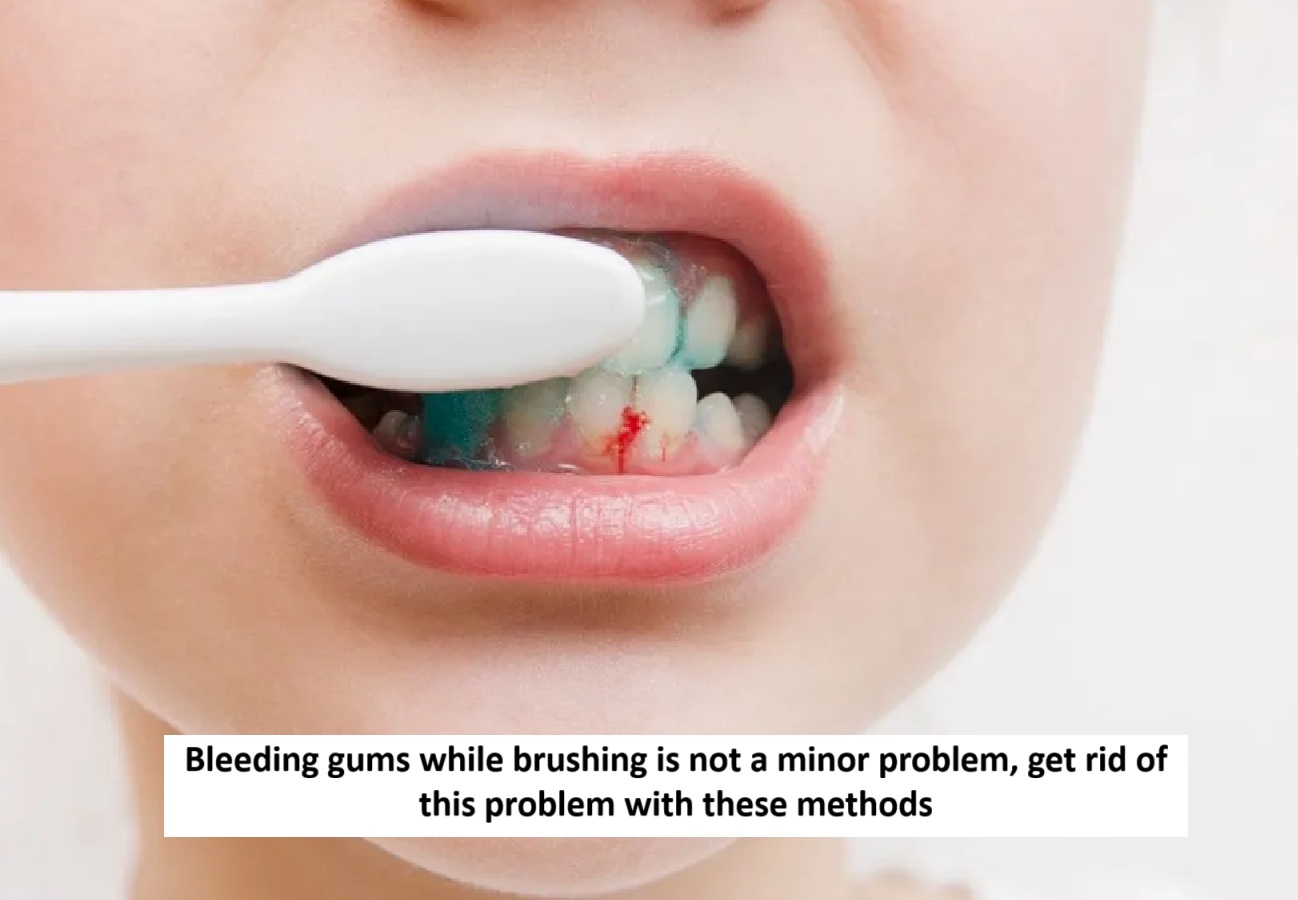
News Topical, Digital Desk : Have you ever seen pink colour while spitting while brushing or found a little blood on the toothbrush? If yes, then you are not alone. Bleeding gums is a common problem, but ignoring it can cause serious problems for your oral health.
Actually, the problem of bleeding from gums can occur at any age and there are many reasons behind it. Often we ignore these reasons just like this problem. But by knowing about them, you can get rid of this problem. Let's know the causes of bleeding from gums and ways to prevent it (Tips to Prevent Bleeding Gums).
What are the causes of bleeding gums?
- Gingivitis - This is the most common cause. When teeth are not cleaned properly, plaque accumulates between the teeth and gums. The bacteria present in this plaque cause infection and inflammation of the gums, which is called gingivitis. Due to inflammation, the gums become fragile and bleed easily when brushing or flossing.
- Hard brushing- Many people think that brushing hard cleans the teeth well, but this is a misconception. Using a toothbrush with hard bristles or brushing hard damages the gum tissues and causes them to bleed.
- Tobacco and cigarettes- Tobacco users and smokers are at a higher risk of gum disease. The chemicals present in tobacco damage the gums and make them weak.
- Hormonal changes- Hormones fluctuate during pregnancy, periods or menopause . This makes the gums more sensitive and starts bleeding easily. This is also called 'pregnancy gingivitis'.
- Some medications – Blood thinners, some types of blood pressure medications, and depression medications can cause bleeding gums.
- Nutritional deficiency- Deficiency of vitamin C and vitamin K also causes gums to weaken and bleed.
- Bleeding gums can also be a symptom of certain health conditions : Health conditions such as diabetes, leukemia, or hemophilia.
Rescue Methods
- Brush properly- Use a toothbrush with soft bristles. Clean the teeth by moving the brush in a circular motion, do not rub it vigorously. Brush twice a day (in the morning and before going to bed at night) for at least two minutes.
- Floss regularly- Brushing alone does not remove plaque from between your teeth. Flossing daily removes food particles and plaque trapped between your teeth, reducing the risk of gingivitis.
- Use of anti-bacterial mouthwash- A good anti-bacterial mouthwash can be helpful in preventing plaque formation and reducing gum inflammation.
- Take a healthy diet – Foods rich in vitamin C and vitamin K make the gums stronger.
- Drink plenty of water – Drinking plenty of water throughout the day helps keep the mouth clean and washes away food particles.
- Avoiding smoking and tobacco – Quitting tobacco and smoking is the best step to improve your oral health.
- Regular dental check-up- Get a check-up from a dentist at least twice a year.
--Advertisement--

 Share
Share



